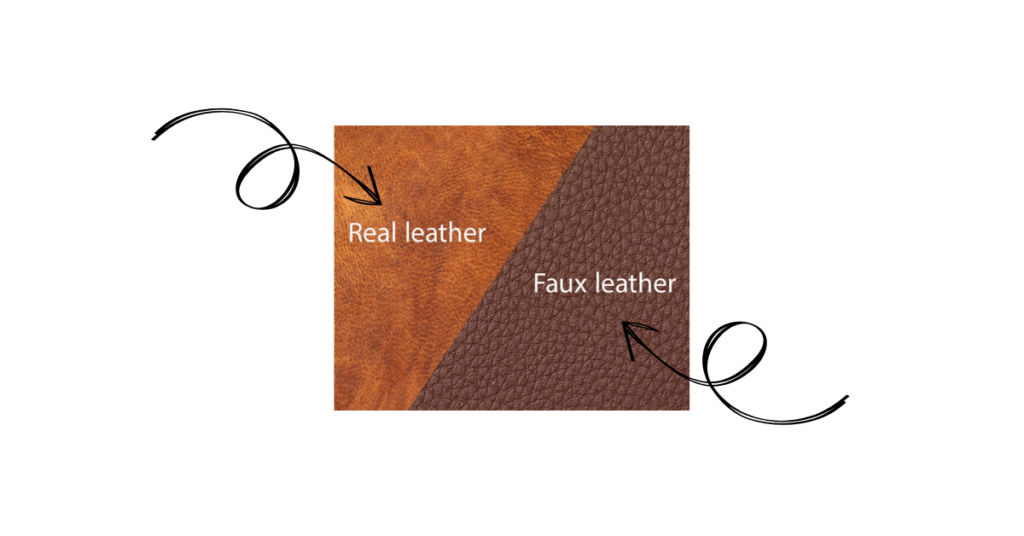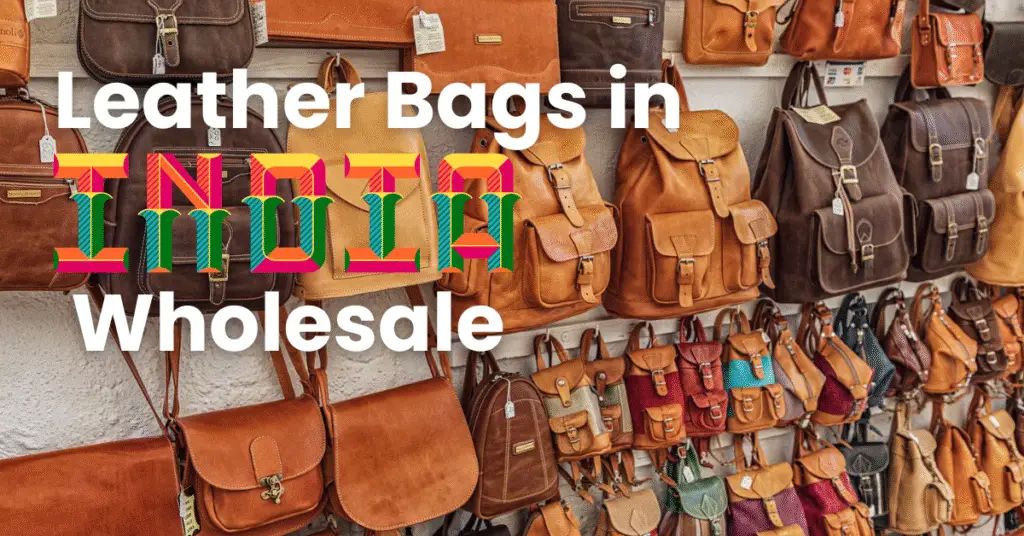Manufacture of leather bags in India contributes nearly about 13% of the world’s total leather production of hides and skins. India has solidified its position as a global leader in the export of leather bags, footwear, garments, and accessories. India ranks among the top nations in terms of cattle, buffalo, goat and sheep populations.
Support from government bodies such as the Council for Leather Exports (CLE) adds further strength. CLE not only regulates quality and compliance but also promotes Indian leather in key international markets such as the United States, Germany, the UK, and Italy.
Finding Genuine Leather Bags in India
Sourcing leather bags from India is a little challenging because of fake leather. It may visually resemble the real thing but falters rapidly under daily wear. This can damage brand reputation but also imposes hidden costs in the form of returns, refunds, and customer dissatisfaction.The same issue applies when sourcing products like a leather laptop sleeve, where durability and authenticity are critical
Ensuring the leather is sourced from certified companies and inspecting for stamps or industry markings can significantly reduce the risk of being misled.

Five Essential Factors to Evaluate When Sourcing Leather Bags
- Authenticity of Material
A genuine leather bag begins with selecting the right material. Full grain and top grain leathers are the gold standards. These retain the hides’ natural characteristics like blemishes, grain, and texture. Synthetic materials fail to replicate these characteristics.
Regions like Tamil Nadu, West Bengal, Uttar Pradesh, and Maharashtra have reputable suppliers dealing exclusively in authentic leather. A supplier’s location often acts as an informal credential indicating whether they are a real manufacturer or not. - Eco Friendliness and Tanning Processes
Leather’s environmental footprint largely depends on its tanning process. Chrome tanning is quick and cost efficient but uses chemical agents that can be harmful. In contrast, vegetable tanning uses natural tannins from bark and leaves, producing biodegradable leather ideal for eco conscious brands.
Buyers should assess chemical treatments used post tanning. Some manufacturers apply irritant chemicals to artificially enhance appearance. Responsible sourcing means opting for transparency and choosing vegetable tanned leather when possible. - Ethical and Sustainable Production
Sustainability in leather production includes fair labor practices, waste management, and minimal environmental disruption. Wholesale buyers should look for certifications and inquire about labor conditions and waste treatment protocols. Partnering with ethical manufacturers boosts both brand integrity and consumer trust. - Quality of Craftsmanship
Leather bag elegance is seen in precision stitching, polished edges, smooth zippers, and sturdy handles. Poor craftsmanship undermines even high quality leather. Requesting a physical sample helps verify quality and identify potential flaws before large orders.
Key Leather Manufacturing Hubs in India
- Cities in Tamil Nadu: Chennai, Ambur, Vaniyambadi Known for vegetable tanning and premium leather accessories. Home to some of India’s oldest leather companies.
- City in West Bengal: Kolkata A hub for traditional craftsmanship and high volume bag production.
- Cities in Uttar Pradesh: Kanpur, Agra, Noida Strong in leather manufacturing and skilled labor for detailed finishing.
- City in Maharashtra: Mumbai Offers access to both small scale artisans and modern production units.
Collaborating with suppliers from these regions ensures access to quality materials and refined craftsmanship. It also allows for scalable production, vital for wholesale operations.
How Panoramic Sourcing Solved These Challenges for You
Panoramic Sourcing bridges the gap between overseas buyers and India’s complex leather goods market. We help you overcome challenges like verifying material authenticity, navigating inconsistent craftsmanship, or identifying the right production hubs. Our team brings on ground expertise and a refined supplier network.
For Example: One of our Amazon clients struggled to source full grain leather bags with consistent stitching and export grade finish. We conducted factory audits across Ambur and Kanpur, shortlisted three top performing manufacturers, and oversaw sample development until the client was satisfied. By handling price negotiations and conducting strict quality checks before shipment, we eliminated risks and ensured that the final product reflected the premium standards our client needed.
Whether you are a first time buyer or scaling an existing brand, we handle every sourcing detail—so you can focus on growing your business with confidence.
Conclusion
Sourcing leather bags from India offers immense potential for wholesale buyers. With a strategic approach rooted in understanding leather quality, verifying authenticity, and partnering with reliable manufacturers, businesses can unlock enduring value. Whether you’re launching a private label or scaling a global brand, India remains a compelling destination for high quality leather goods.

Written by Ajit Jha
Panoramic Sourcing
Ajit Jha is the co-founder of Panoramic Sourcing and leads the Quality Department. With over 25 years of experience, he has worked with a wide range of international buyers to ensure product quality, compliance, and smooth sourcing from India. Ajit is known for his hands-on approach and sharp eye for detail.

